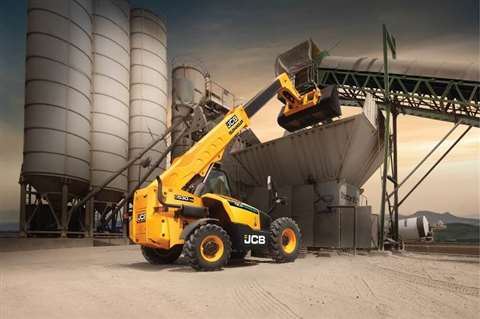JCB India’s new Stage IV equipment
28 July 2021
 JCB India has launched a new range of CEV Stage IV compliant wheeled construction equipment vehicles
JCB India has launched a new range of CEV Stage IV compliant wheeled construction equipment vehicles
JCB India has launched a new range of CEV Stage IV compliant wheeled construction equipment vehicles.
The original equipment manufacturer is said to be the first in India to have brought in the CEV Stage IV Emission Standards across its range of wheeled machines.
The range includes the 3DX Plus and the 4DX Backhoe loaders, the VM117 soil compactor, the 530-70 and the 530-110 Telehandlers with engines complying with the new emission standards.
For bulk handling, three new wheeled loaders, the 433-4, the 437-4 and the 455-4 were also launched with new engines.
At an event in JCB India’s factory in Jaipur, India, CEO and managing director of JCB India, Deepak Shetty said, “Sustainable growth has always been one of the cornerstone of our operations. We welcome the introduction of CEV Stage IV Emission Standards for wheeled construction equipment vehicles.
“This new range is our strong commitment towards the environment and sustainability. In addition to being lower in emissions, these machines are also more fuel-efficient, thus reducing the total cost of ownership of the equipment.”
In March 2018, India’s Ministry of Road Transport and Highways released the final rule for non-road Bharat Stage (CEV/Trem) IV and V emission standards,1 including stringent emission limits on particulate matter (PM), particulate number (PN), nitrogen oxide (NOX), hydrocarbon (HC), and carbon monoxide (CO). This was the first time India had adopted one set of consistent standards regulating both agricultural and construction equipment.
STAY CONNECTED



Receive the information you need when you need it through our world-leading magazines, newsletters and daily briefings.
CONNECT WITH THE TEAM







